Paarl – Pink, Pretty In
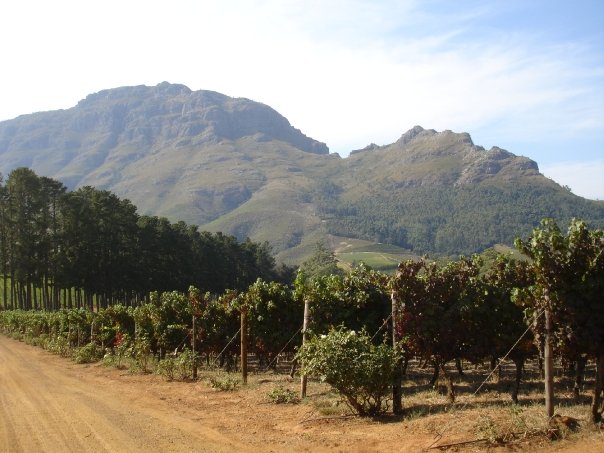
Paarl – Comes before wines in South Africa.
Pacherenc du Vic-Bilh – A quasi-masonic ritual observed in Gascon restaurants whereby you will only be able to order the wine if you can actually pronounce it. If you fail three times in this endeavour, a portal into hell will open.
Padthaway – A clear route to market for commercial Southern Australian wines.
Pais –Rhymes with Spice, Not Nice. Found in Maule & Bio-Bio in Chile, it is also known as the Mission grape. Pais is best when it is old (or rather from old vines), unlike Spice (ie Old Spice).
Palatinate – An area around the Pfalz region in Germany where the population are said to have particularly acute taste buds.
Palette – A tiny area in Provence, dominated by one estate, Chateau Simone, whose entire production can fit on a single pallet.
Palo Cortado – A tiny espresso with the merest whisper of milk.

Panglossian – The wine trade is Panglossian, happy in its supposed certainties, and when I read the trade papers I know I’m in la-la land and when I hear the latest Nielsen figures generously massaged by the wine boards of every country I am compelled to believe that everyone is a winner and all is indeed for the best. Progress is measured in novelty for novelty’s sake, modernity, expansion, market share; whilst discernment is viewed as snobbish and elitist. Quirkiness and imperfections are still distrusted rather than cherished. In this Looking Glass world winemakers are encouraged to make wines to please the market which suggests that wine is commodity designed to appeal to people obsessed by price point or image. It is difficult to imagine an artisan cheese-maker saying to him-or-herself: I wonder if this unpasteurised Stilton will appeal to the man in the street? Perhaps I should make something totally denatured to be on the safe side. Whilst the agenda is set by supermarkets, however, individuality is bound to be marginalised to a certain extent. The recent Nielsen statistics revealed that 71% of the wines consumed in this country are either brands or supermarket labels. Are we happy with mediocrity, with safe, unchallenging wines made by flying winemakers, with brands and recognisable labels, with playing the game, with the complacent determinism of the trade or shall we pluck convention by the nose and articulate a strong independent agenda?
Panjandrum, The Grand – An internationally-renowned critic who lives in an opine forest.
Parker Debit – When a critic scores a wine highly with such frequency the scores then go on a direct debit (to be topped up if the overdraft of 100 points is breached). Not to be confused with Pagedebit, a variety from Emilia-Romagna.
Passerillée – Grapes shrivelling on the vine.
Passetoutgrains –Phileas Fogg’s faithful assistant in Around The World In 80 Grapes.
Pasteur – The holy father of modern winemaking.
Pathetic Fallacy – Brooding, severe, austere, proud, secretive may seem the wines to the lovers of pathetic fallacies. (Oxford Companion To Wine).
Pauillac – Much enjoyed by rappers and their entourages who delight in passing the Yak with their Lunch-Bags. The Chinese are also said to revere the Pauillac Float, especially Chateau Coco-Lalande and Pepsi-Baron.
Peduncle – A pedantic father’s brother.
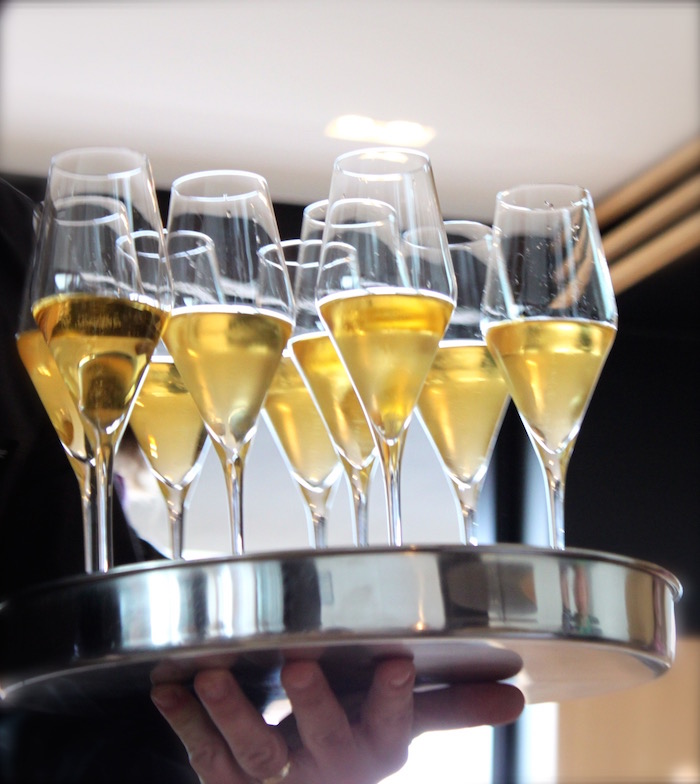
Penedès – Where Cava and the Miguel Torres industries originate.
Penfolds – The scale of increase in a wine’s value after a glowing review from a top critic. As in “Chateau So-and-So has increased penfolds after that 100 pointer from Parker.”
Perignon, Dom – “Come quickly, I am seeing marketing opportunities!”
Pet Not of the week —
If champagne is the heavy petting of pure fizzicality the naturally sparkling wines of the Loire might be described as the tender embrace of bubbles. They begin their lives as the potential to make fizzy wines; many are called but not all, however, choose to make the complete journey to pet realisation. The conversion of sugar by the yeast into Co2 is not inevitable and we have tasted many examples, alas, where the bubbles have failed to toil and trouble.
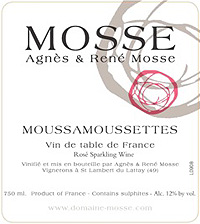
Moussamoussettes (Rene Mosse), for example, twinkled effectively for us two years ago, but first taste the following year confirmed that the wine was as flat a pancake coated with sugar syrup. The mousse was not quite yet on the loose, but Monsieur Mo(u)sse assured us that in a couple of weeks we’d have bubbles winking at the rim of the glass and that the fermentation would trickle along merrily. And so it came to pass eventually. Breton’s pale pink Ritournelle was also in abeyance (or denial), flaccid rather than effervescent, which led one to worry that the weakling yeasts had insufficient energy to devour those sugars. Come quickly, Dom, I am not tasting stars!
Petit-minded grapes –
Petit Courbu – the Gascon one that makes dry wines
Petit Manseng – the Pyrenean one that makes sweet wines
Petit Rouge – the main red in Valle d’Aosta and important part of Torrette
Petit Verdot – the other other grape of Bordeaux
Petite Arvine – the Alpine white grape that straddles Valle d’Aosta and Switzerland
Petit Chateaux – Tiny castles where wine is made in miniature.
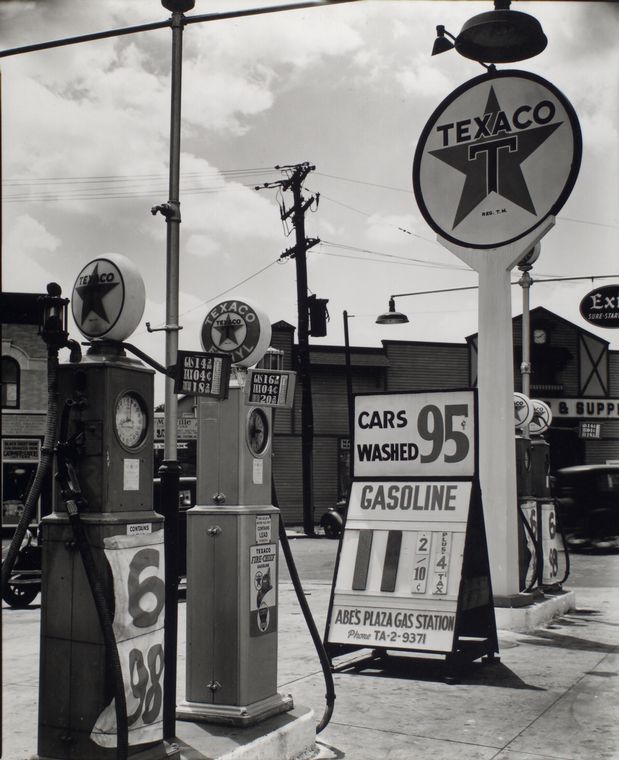
Petrol Pump Wine – Not four star or diesel (those old German or young Aussie Rieslings!)
Petrolly – a description of the secondary aromas of a Riesling wine with a few years maturity. Also known as the transformation from Riesling to Dieseling.
Petrus – What is the wine about? Imagine a cathedral lit with every light and line focused on the high altar. And on the altar, very reverently placed, intensely there, a stave of oak, a punnet of blackcurrants and the gospel according to Robert Parker. (with apologies to HG Wells).
Pfalz – A German wine that is totally atypical.
Philosophy – “I hardly know wherein philosophy and wine are alike unless it be in this, that the philosophers exchange their ware for money, like the wine-merchants; some of them with a mixture of water or worse, or giving short measure.” (Walter Pater – Marius The Epicurean)
Pichets/Fillettes – known for their uses in hand-to-hand combat in rugby bars around Toulouse. Jugs or carafes of various measurements that very properly allow you to drink the quantity of wine that you want.
Picpoul – A good Picpoul’, he expounds authoritatively, ‘should be crisp and full at the same time. That’s how the grape got its name: pic as in piquer – to prick – and poul as in poul. (A blank look from me.) ‘An old Occitan word meaning soft and rounded,’ he elaborates, as if he thought everyone fluent in the medieval language of the troubadour poets. But the closet etymologist soon gives way to the more familiar bibulous incarnation, when a second and a third bottle measures up to expectations. –Patrick Moon, Virgile’s Vineyard
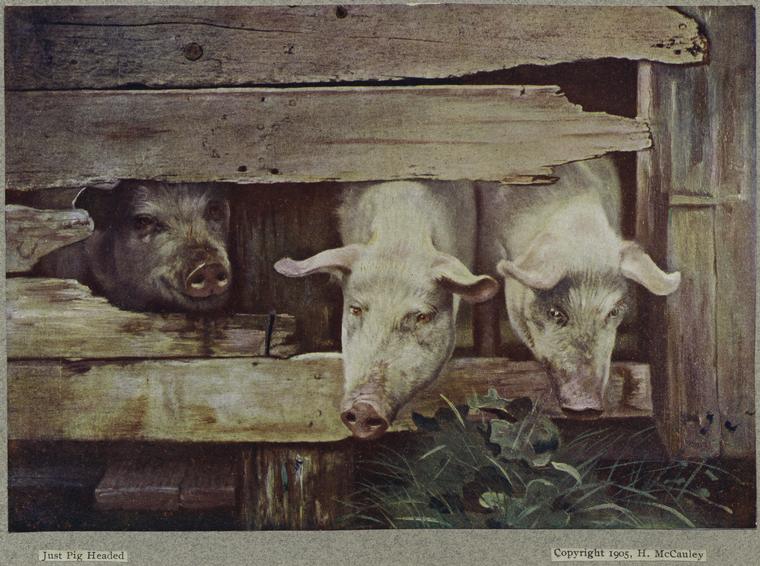
The Pig Grapes –
Pigato – The Ligurian white one
Pignatello – The Sicilian red grape Perricone
Pignolo – The black intense rarely seen grape from Friuli
Pigeage – Punching down the cap of grape-skins with a pig’s snout in order to extract more porcine flavours.
Pineau d’Aunis –
Pink – AKA 50 Shades of Vin Gris. Describing your blushing wine requires a degree in lipstickology. Coral; oeil-de-perdrix; onion-skin; salmon-pink; carnation; rose; cherry-blossom and tickle-me-pink.
Pink Moscato – An example of Gallo’s humour.
Pink, Pretty In —
We’ve probably endured enough whimsical articles about “la vie en rosé” and how we should be “tickled pink” by surprisingly drinkable rosé wines, but that’s not going to stop this miniature pink peroration. Perhaps it’s global warming, perhaps the adoption of an al fresco lifestyle, wherein at the first watery glimmer of the sun, tables are hurled willy-nilly onto pavements and all the coffee chains start serving frappuccinos, or the fact that Mediterranean cuisine has become so popular both in restaurants and in our homes, or perhaps praise Ryanair and Easyjet for transporting us at the drop of a penny (plus taxes) to sunnier climes where any blushing wine (usually consumed in an impossibly picturesque location) forever trills the romance of abroad, a romance that only rosé can reignite in our veins, but… we are undoubtedly consuming more and more of the frolic wine. Rosé is oddly the only one of the three colours (quick digression, I’m trying – and failing – to imagine a cheerful Kieslowski film: Three Colours – Pink.) that has been the subject of intensive marketing campaigns primarily due to brands such as Mateus and Blossom Hill – shudder – which are predicated on the notion that we choose to drink rosé – almost as a statement of who we are. I prefer to attribute the growth of rosé-drinking to all the reasons listed above plus one other: the inability to choose between red and white! Underlying this facetious point is a more serious one: rosé is the classic modern “compromise wine,” a kind of superior house/Pinot Grigio default wine.
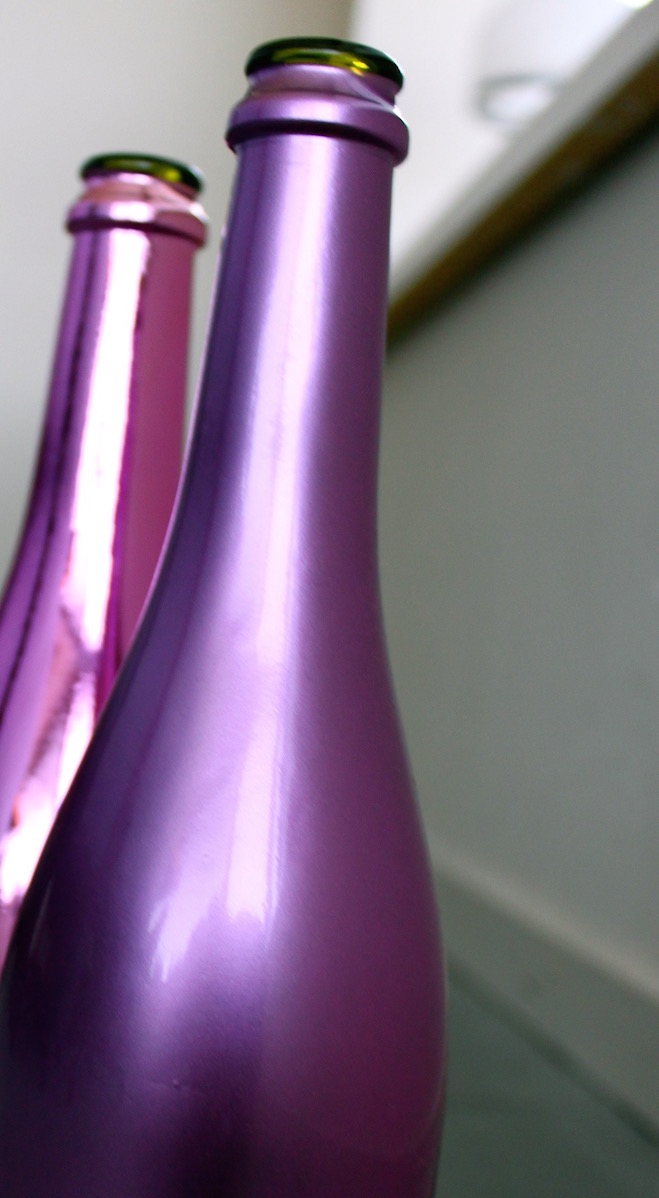
Rosé is a by-product of red wine-making and will be either be guzzled by the grower’s family and friends or sold to local hostelries, but there are wines that are good enough to be considered on their own merits. Provence is the spiritual home of pink wine producing pale or pearly-pink wines scented with wild flowers, fennel and herbs and often as dry as the rocks from which the vines spring. Nor are the wines, except for powerful, menthol-intense wines of Bandol, particularly alcoholic; their delicacy makes them a pleasure to quaff uncritically, but also provides excellent accompaniment to oily fish such as mullet, sardines and is a dream with saffron-drenched, garlic-heavy fish soups and works equally well with stuffed aubergines, courgettes and tomatoes.
No matter the improvements in winemaking these are still wines to drink in the first flush and blush of youth. Elizabeth Barrett Browning might have been describing the effects of age on a bottle of pink wine when she wrote: “O rose, who dares to name thee? No longer roseate now, nor soft, nor sweet, But pale, and hard, and dry, as stubblewheat – Kept seven years in a drawer, thy titles shame thee.” While the wine is still alive with beaded bubbles winking at the rim it lifts the spirits and makes one think of sunshine, summer or holidays.

